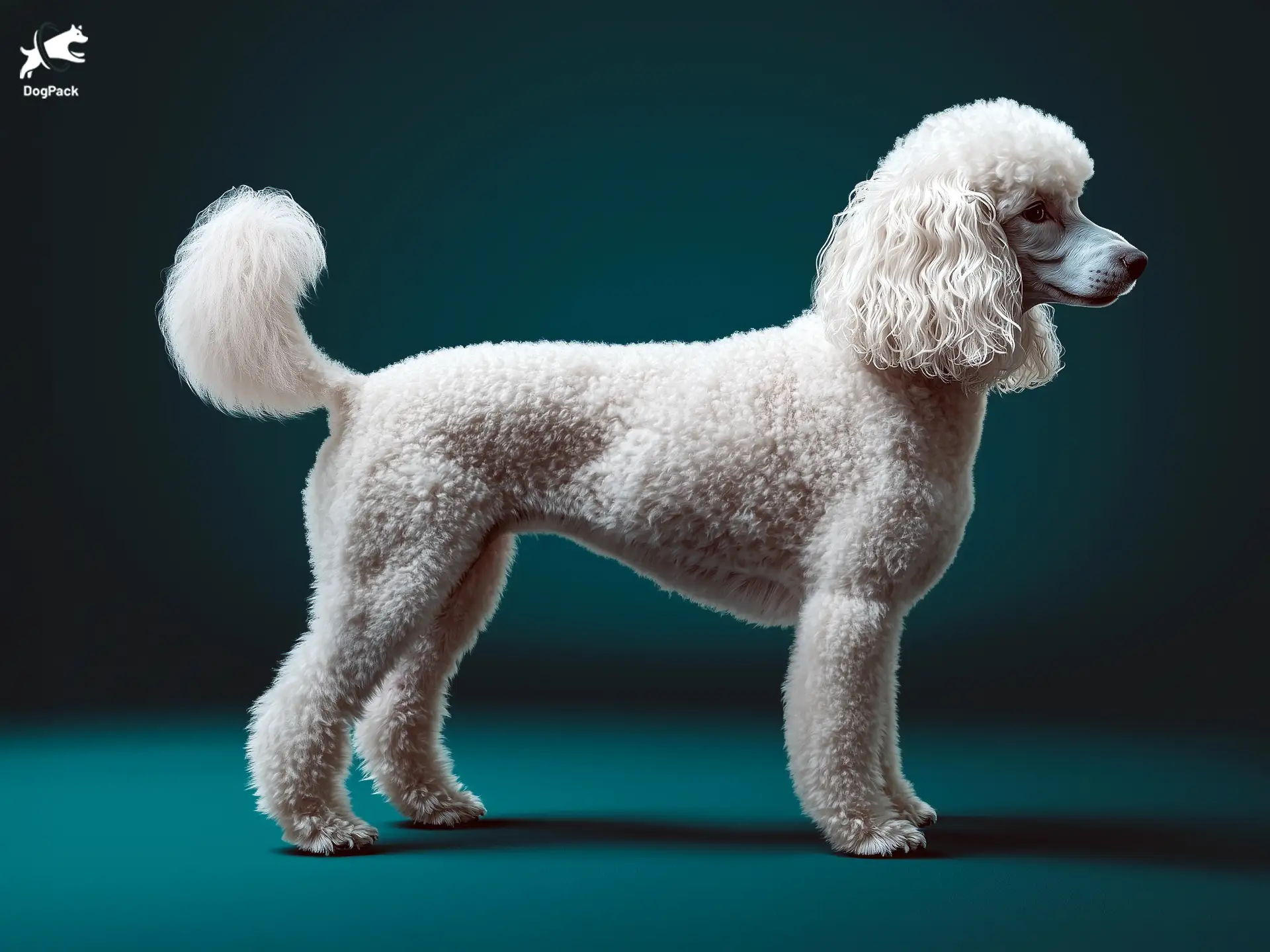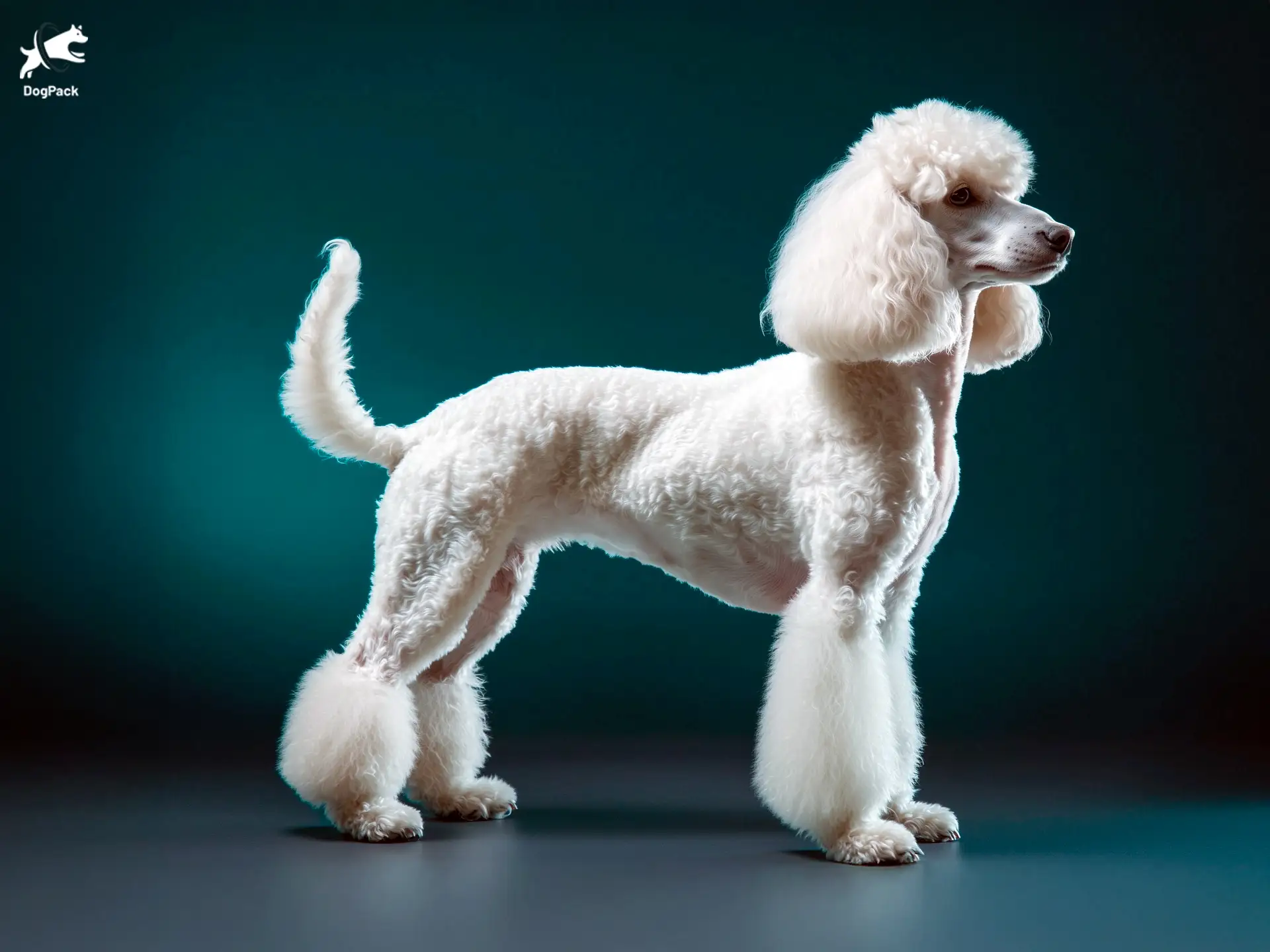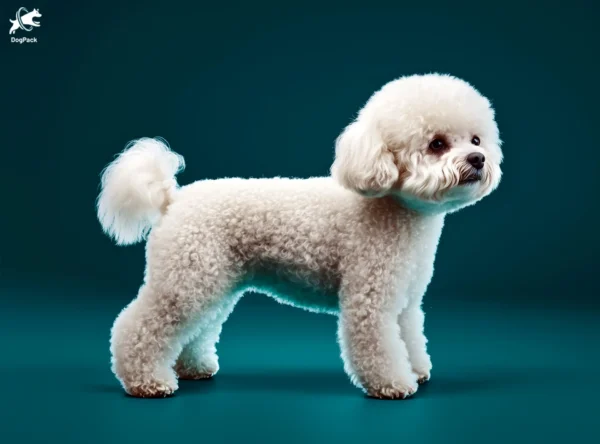French Poodle Dog Breed Info & Overview
Graceful, intelligent, and undeniably elegant, the French Poodle has long been a favorite among dog enthusiasts. Known for their hypoallergenic coats and keen minds, these dogs come in various sizes to suit any living situation. Whether you’re seeking a lively companion or a sophisticated show dog, the French Poodle brings charm and companionship in spades.
Characteristics
Pictures
Breed History
Contrary to its name, the French Poodle actually has German origins. Bred as “Pudelin” or “water dogs,” they were prized for their ability to retrieve game from the water. Their intelligence and agility made them invaluable to hunters. However, it was in France where the breed truly flourished, gaining fame and earning the title of France’s national dog.
In France, Poodles transitioned from working dogs to companions of nobility. Their elaborate grooming styles began as functional trims, protecting vital areas during water work, but later evolved into a symbol of luxury and elegance. Their popularity among aristocrats solidified their status as one of the most stylish breeds.
The Poodle’s versatility led to the development of three sizes—Standard, Miniature, and Toy—each catering to different roles and living environments. Today, the French Poodle is celebrated worldwide, blending working-dog roots with an undeniable flair for sophistication.
Temperament, Personality
French Poodles are the epitome of charm and intelligence. They thrive on mental stimulation and enjoy tasks that challenge their quick minds, making them a favorite for owners who enjoy an interactive companion. Their playful yet gentle demeanor ensures they’re a hit with families and individuals alike.
These dogs are affectionate and form strong bonds with their families, often acting as a “shadow” to their favorite person. They get along well with children and other pets, though early socialization helps nurture their friendly nature. Their adaptability allows them to fit seamlessly into a variety of households.
While they are outgoing with loved ones, Poodles can be reserved around strangers. This cautiousness, combined with their alertness, makes them excellent watchdogs. With training, they balance their protective instincts with their inherent friendliness, becoming confident and well-mannered companions.
Physical Characteristics
The French Poodle is synonymous with elegance. Their iconic curly coat, dense and water-resistant, is not only beautiful but also practical. It comes in a range of solid colors, including classic white, black, apricot, and gray, enhancing their refined appearance.
The breed’s three sizes cater to diverse lifestyles. The Standard Poodle, standing over 15 inches tall, is athletic and robust. The Miniature, between 10 and 15 inches, is compact yet lively. The Toy, under 10 inches, is delicate and suited for smaller spaces, yet still retains the breed’s characteristic poise.
Poodles share a dignified posture, with dark, intelligent eyes that radiate curiosity and affection. Their long, straight muzzles and high-set ears frame their expressive faces, while their proud gait showcases their agility and grace.
Health Issues
The French Poodle is generally healthy but may inherit certain conditions. Standards are more prone to hip dysplasia, a joint condition common in larger breeds, while all sizes may face progressive retinal atrophy (PRA), leading to vision loss. Regular veterinary check-ups are crucial to catch and manage these issues early.
Smaller varieties, like Miniature and Toy Poodles, can develop patellar luxation (knee dislocation) and dental issues due to their compact jaws. Maintaining dental hygiene is vital to prevent periodontal disease.
Additionally, Poodles may experience Addison’s disease (adrenal insufficiency) or thyroid problems. Monitoring their overall health, energy levels, and weight ensures early detection and better management of potential conditions, contributing to a long and happy life.
Grooming Needs
The French Poodle’s luxurious coat is a hallmark of the breed—but it comes with high-maintenance grooming needs. Regular professional grooming every 4–6 weeks is often necessary to keep their curly coat in pristine condition. Between appointments, daily brushing helps prevent matting and tangles.
Their low-shedding coat makes them a great choice for allergy sufferers, but it requires diligence to maintain. Regular cleaning of their floppy ears is essential to prevent moisture buildup and infections. Additionally, weekly teeth brushing and routine nail trims are crucial parts of their care.
While their grooming routine may seem demanding, many owners find it a small price to pay for their striking appearance and minimal shedding. Establishing a grooming schedule early helps both owner and dog adjust to this routine.
Exercise Requirements
Despite their elegant looks, French Poodles are active and need regular exercise. Daily walks, ranging from 30 minutes for Toys to longer sessions for Standards, help keep them physically fit. They also enjoy activities like swimming, a nod to their water-retrieving roots.
Mental stimulation is just as vital. Puzzle toys, obedience training, and agility exercises keep their sharp minds engaged and prevent boredom. Without adequate stimulation, Poodles may develop unwanted behaviors, so keeping them active is key.
Standards, in particular, thrive on more vigorous activities like jogging or structured play. Miniatures and Toys may require less intense exercise but still enjoy interactive games that challenge both their bodies and minds.
Training Tips
Training a French Poodle is a joy, thanks to their intelligence and eagerness to please. Positive reinforcement techniques work wonders—use treats, praise, and affection to motivate them. They quickly grasp commands, making them ideal for first-time dog owners.
Early socialization helps prevent shyness and ensures they grow into confident adults. Expose them to various environments, people, and other animals to nurture their well-rounded temperament. They are sensitive and may not respond well to harsh corrections, so a gentle, consistent approach works best.
Given their smarts, Poodles can get bored with repetitive tasks. Keep training sessions varied and fun to maintain their enthusiasm. Advanced training or learning tricks can further challenge their intellect and deepen the bond with their owner.
Nutrition, Diet
A balanced diet tailored to their size and activity level is essential for the French Poodle’s health. Standards, with their higher energy needs, typically consume 2–3 cups of high-quality dry food daily, split into two meals. Miniatures and Toys require smaller portions, ranging from 0.5–1.5 cups daily.
To prevent bloat, which can affect Standards, avoid vigorous exercise around meal times and opt for smaller, frequent meals. High-quality protein supports muscle health, while omega fatty acids promote their lustrous coat.
Monitoring their weight is crucial, as obesity can exacerbate health issues. Consult with your veterinarian to determine the best dietary plan, especially if your Poodle has specific health needs or food sensitivities.
Adoption, Breeders
When considering a French Poodle, prioritize finding a reputable breeder or exploring adoption options. Responsible breeders provide health clearances for common conditions and ensure puppies are well-socialized from an early age.
Adoption can be a rewarding choice. Rescue organizations, such as the Poodle Club of America Rescue Foundation, often have Poodles in need of loving homes. Shelters and breed-specific rescues may also have both purebred and mixed Poodles available.
Avoid puppy mills or online sellers who can’t provide detailed information about the dog’s health or background. Researching and choosing a trustworthy source ensures you bring home a healthy and happy companion.
Family Pet?
French Poodles excel as family pets, blending intelligence, affection, and adaptability. They thrive in households with children, forming strong bonds through interactive play and cuddles. Supervision is recommended for younger kids, especially with smaller Poodle varieties.
Their sociable nature means they generally get along well with other pets. Early introductions help foster harmony, making them an excellent choice for multi-pet households. Whether you’re a single owner or part of a bustling family, Poodles adapt seamlessly to their environment.
Their balance of energy and calmness makes them ideal for families who can dedicate time to grooming, training, and play. They are as much a companion as they are a member of the family.
Right For You?
Are you ready to welcome a French Poodle into your life? These adaptable dogs are perfect for owners who can meet their grooming, exercise, and social needs. Whether you live in a city apartment or a suburban home, Poodles can thrive with the right care.
If you’re seeking an intelligent, trainable, and affectionate companion, the French Poodle might be your ideal match. However, their high grooming demands require a commitment of time and resources. Consider your lifestyle and availability before making the decision.
For those ready to embrace the breed’s unique blend of elegance and playfulness, a French Poodle promises years of companionship, loyalty, and joy.
Conclusion
The French Poodle is a breed like no other, offering a perfect mix of beauty, brains, and affection. Whether as a family pet or a devoted companion, they excel in bringing joy to their owners. If you’re prepared to meet their grooming and exercise needs, you’ll be rewarded with a loyal friend who’s as charming as they are intelligent. With their adaptability and winning personality, the French Poodle could be the perfect addition to your life.
FAQs
-
What are the differences between Standard, Miniature, and Toy French Poodles?
Standard Poodles are the largest, standing over 15 inches tall, while Miniatures are between 10–15 inches, and Toys are under 10 inches. Each size shares similar traits but differs in exercise needs and space requirements.
-
Do French Poodles require professional grooming?
Yes, regular professional grooming is recommended for French Poodles to maintain their curly coats and prevent matting. Trims every 4–6 weeks, along with at-home brushing, keep their fur in excellent condition.
-
Are French Poodles good for first-time dog owners?
French Poodles are a great choice for first-time owners due to their intelligence, trainability, and adaptability. Their eagerness to please makes training straightforward, provided owners are consistent and patient.
-
Do French Poodles get along with children?
Yes, French Poodles are known for their friendly and playful nature, making them wonderful companions for children. Supervised interactions ensure positive experiences, especially with younger kids who may need guidance on gentle handling.
-
How active are French Poodles indoors?
French Poodles are moderately active indoors and enjoy interactive games like fetch or puzzle toys. While they need daily walks and outdoor play, their intelligence means they also benefit from mental stimulation within the home.
Breed Ratings
The French Poodle is one of the most intelligent dog breeds, excelling in learning new commands and tasks quickly.
They have a playful spirit, enjoying interactive games and activities that engage both mind and body.
With moderate to high energy, French Poodles need regular exercise to maintain their physical and mental well-being.
Low shedding makes them ideal for those who prefer a cleaner home and less hair on furniture.
They have a mild prey drive but can usually coexist peacefully with smaller animals when properly socialized.
Despite low shedding, their curly coat requires extensive grooming to prevent matting and maintain health.
Highly trainable due to their intelligence and eagerness to please, they respond well to positive reinforcement.
French Poodles prefer company and may experience separation anxiety if left alone for long periods.
They can be moderately vocal, often barking to alert owners but can be trained to minimize excessive barking.
Minimal drooling makes them a neat choice for owners who prefer a cleaner dog.
Generally sociable with other dogs, especially when socialized early, they enjoy canine companionship.
With proper care and regular vet visits, French Poodles are generally healthy but can be prone to certain genetic conditions.















